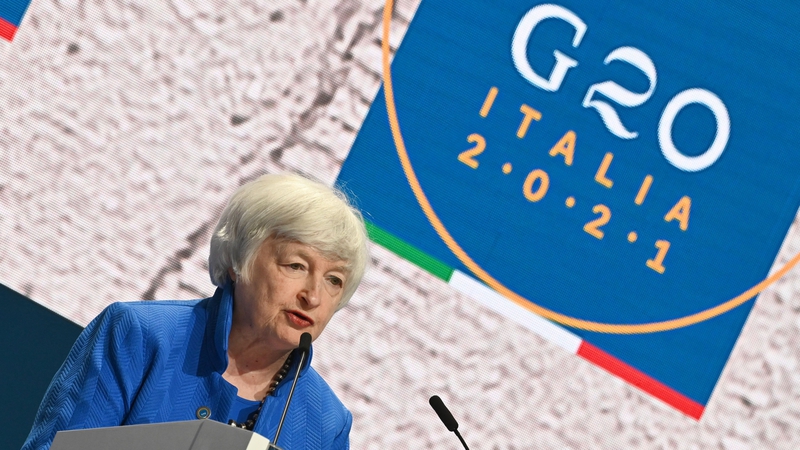US to push development banks to step up climate financing effort
Updated / Sunday, 11 Jul 2021

US Treasury Secretary Janet Yellen said she will push the major multilateral development banks to "increase their climate ambition" and accelerate timelines to support the Paris Agreement on carbon emissions reductions.
Ms Yellen told a news conference that development lenders, including the World Bank, needed to boost efforts to encourage more private-sector climate-friendly investment.
"I plan to shortly convene the heads of the MDBs to articulate our expectations that the MDBs align their portfolios with the Paris Agreement and net-zero goals as urgently as possible," she said in remarks to a G20 climate forum.
"We also expect them to take steps to more effectively mobilise private capital so that developing countries can increasingly benefit from private sector pledges to support climate-aligned and sustainable investments," Ms Yellen said.
Ms Yellen wields significant influence over the development lenders, as Treasury manages substantial US shareholdings in the institutions.
The United States is the dominant shareholder in the World Bank and the Inter-American Development Bank, while it is among the largest in the Asian Development Bank and the African Development Bank.
It is not a member of the China-led Asian Infrastructure Investment Bank.
Ms Yellen said multilateral development banks have the policy expertise, relationships, and financial tools to make a substantial contribution towards meeting climate goals.
"As leading sources of official finance, the MDBs need to maximise the catalytic impact of their support for countries seeking to confront a changing climate, and to harness the economic opportunities embedded in the transition to a low-carbon economy."
Ms Yellen also said she was working through the Financial Stability Oversight Council, a US multi-regulator body she chairs, to assess the impact of climate-related risks to the financial system.
The Treasury also is seeking to improve disclosures of climate risks to investors, and Ms Yellen said she working closely with domestic regulators and international partners to promote consistent cross-border approaches to such disclosure rules.


 Jul 10, 2021
Jul 10, 2021





